Jimma University Owes the Public an Apology A Rebuttal to the Mischaracterization of Multinational Federalism in Ethiopia
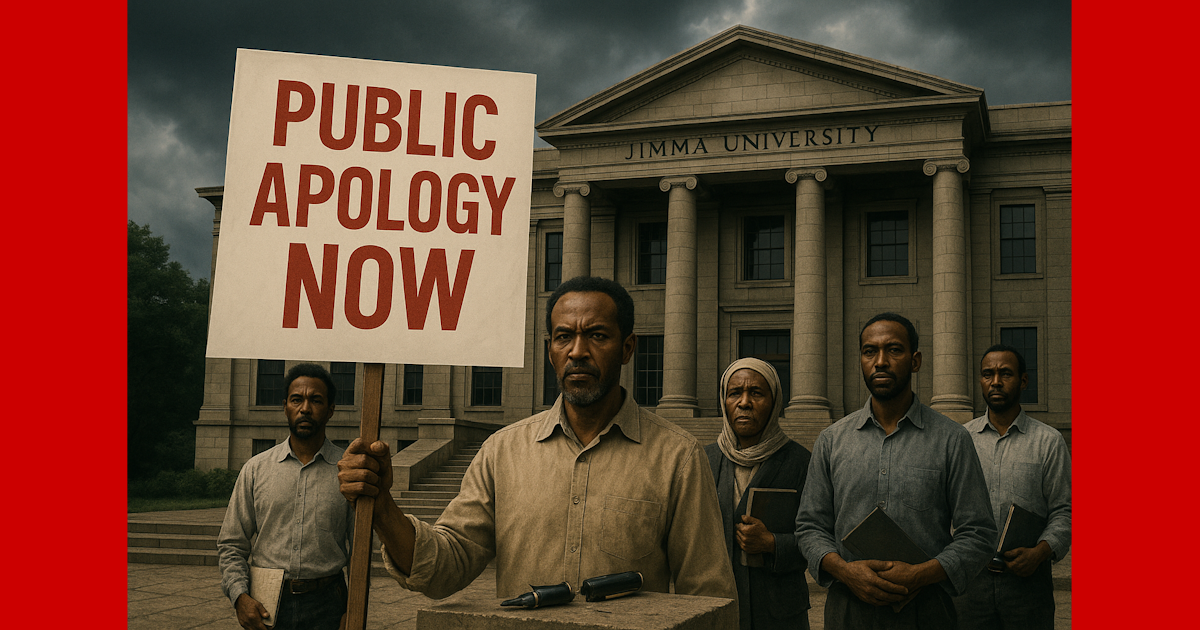
Abstract
This rebuttal challenges the grossly biased and inflammatory article authored by Mr. Girma A. Demeke of Jimma University, which is scheduled for publication in the Journal of African and Asian Studies (JAAL), Volume 14, Issue 2. Masquerading as scholarly analysis, the article deploys ideologically loaded language such as “ethnic politics” and “scourge” to delegitimize Ethiopia’s constitutional Multinational Federalism. It presents a dangerous, neo-colonial narrative that pathologizes the legitimate political aspirations of oppressed nations, nationalities, and peoples. This response calls upon Jimma University to issue a public apology for enabling the dissemination of such divisive and academically indefensible content through its faculty.
1. Introduction: A Dangerous Narrative in Academic Disguise
Publications abound against the mischaracterization of Ethiopia’s multinational federalism. They critically analyze the historical and political contexts that have shaped Ethiopia’s ethnic relations and federal structure. A notable author in this area is Asafa Jalata who has addressed this important issue in different contexts [1,2]. It is unfortunate that such scholarly advice is very seldom heeded.
The article in question, attributed to Mr. Girma A. Demeke of Jimma University, is nothing short of an ideological manifesto masquerading as a scholarly piece. Its inflammatory title, “The Scourge of Ethnic Politics in Ethiopia: An Analytical Commentary [3]”—how dare one use such an insolent title!—and its repetitive weaponization of terms such as “ethnic politics,” “ethnic nationalism,” and “ethnic federalism,” betray not objective analysis but deeply embedded bias.
This type of language is not neutral; it is designed to invoke fear, resentment, and revulsion—primarily toward historically marginalized groups now seeking recognition and equality under Ethiopia’s Multinational Federal arrangement. The very use of the word “scourge” evokes a moral panic, laying blame not on structural inequality but on the identities of those demanding justice.
Sadly, this type of academic authorship is nothing new in Ethiopia. It has long been the modus operandi of the empire’s elites—an entrenched tradition of cloaking ideology in the language of scholarship. Over time, such distortions have become normalized, escaping the scrutiny they deserve. Only those as glaring and difficult to conceal from the public gaze tend to face challenge or exposure.
2. On the Weaponization of “Ethnic Politics”
The phrase “ethnic politics” has increasingly become a rhetorical cudgel to attack the constitutional framework meant to redress historical injustices in Ethiopia. Rather than interrogating state violence, land dispossession, and systemic exclusions that necessitated a federal solution, the article vilifies those seeking redress. It equates their efforts with disunity and hate.
This is not analysis; it is polemic. When the political aspirations of nations and nationalities are reflexively dismissed as inherently dangerous, the very foundation of inclusive governance is undermined.
3. False Equivalence and Logical Fallacies
A standout example of dangerous false equivalence, one among several, appears in the claim:
“Ethnic politics, or broadly, nationalism characterized by hatred and corruption, has escalated to an unprecedented peak.”
This statement not only conflates all identity-based political engagement with hatred, but it erases the legitimate struggle of historically subjugated peoples for self-determination.
Such sweeping generalizations violate every principle of rigorous, evidence-based academic inquiry. Furthermore, the author fails to distinguish between the democratic articulation of ethnic identity and political opportunism that manipulates it.
4. The Romanticization of Unitary “Ethiopian Patriotism”
The article venerates “Ethiopian patriotism” as morally superior to what it calls “ethnic nationalism,” stating:
“This particularly impacted those who prioritized Ethiopian patriotism over ethnic nationalism”.
This reveals a deeply troubling nostalgia for Ethiopia’s unitary imperial past—a system built on linguistic, cultural, and territorial erasure.
It is disingenuous to present this as a neutral patriotism when it served as the ideological backbone of repression for much of the 20th century. The implicit assertion is that pluralism is illegitimate unless subsumed under a homogenizing state narrative.
5. Misdiagnosing Implementation as Policy Failure
Mr. Girma A. Demeke attempts to delegitimize Multinational Federalism by pointing to administrative inefficiencies and conflict. Yet these are not failures of the policy itself but of its undermined implementation—often at the hands of Amhara-centric elites who have historically resisted power-sharing.
Experimental Federalism, especially in deeply pluralistic societies, is bound to face challenges. But equating these challenges with systemic failure is both analytically flawed and politically motivated. This analysis erases the sabotage and obstruction Multinational Federalism has faced since its inception.
6. Methodological Inadequacy: Someone’s Interview as “Evidence”, No Referred Sources
Astoundingly, the entire analysis hinges on a YouTube interview aired by Fana Television [4,5], conducted with Mr. Getachew Reda, the former head of the Tigray Transitional Government—a controversial political figure who recently fell out with his own party.
This is not a primary source—merely a secondary account drawn from an interview conducted by another party. It is anecdotal evidence at best, and politically compromised material at worst. No triangulation is attempted. No counterbalance is offered. For a scholarly article to rest on such a weak foundation, absent comparative cases, absent statistical data, and absent peer-reviewed corroboration, is a discredit to the field.
Furthermore, the author has not referenced any content of the cases made by the OLF and TPLF as to why they formed their movements and what their stated goals are. For any academic work to hold water, one cannot just write a diatribe and draw own conclusions without challenging the basis of their case for forming national movements and, as important, by not mentioning the support from their respective peoples. This is a manifestation of a one-sided tirade at best and hate-based propaganda at worst.
In fact, this begs a profound inquiry: what is the difference between the “nationalism” of the subjugated and the “nationalism” of those perpetrating the subjugation? What drives these divergent expressions of national will?
We shall leave this as a rhetorical question for fair-minded academicians as well as institutions like Jimma University to ponder.
7. Selective Victimhood and Amhara Exceptionalism
Throughout the article, Mr. Girma A. Demeke constructs a narrative of exceptional victimhood for Amharic speakers, selectively highlighting their suffering while ignoring that of others. Oromo, Somali, Sidama, Wolayta, etc, voices are rendered invisible.
The conclusion, which emphasizes free movement and employment, conceals a deeper ambition: to reassert Amhara elite dominance under the banner of national unity. This is a textbook example of how supremacist ideologies disguise themselves in universalist language.
8. Dismissal of Indigenous Histories and Identity Claims
The article mockingly refers to Oromo links to the Kushite civilization and Tigrayan historical claims as “fabricated” without engaging the growing body of academic research on these subjects. This rhetorical move is not only disrespectful but colonial in tone—denying colonized peoples the right to narrate their own histories. The claim that some Oromo groups are still “nomadic” is deployed not as a neutral observation but as a derogatory insinuation of cultural backwardness.
9. Final Paragraph: A Veiled Political Manifesto
The final paragraph of the article reads more like an Amhara ethno-nationalist manifesto than an academic conclusion. It calls for a return to a unitary system under the guise of “freedom of movement and employment,” erasing the historical inequalities that gave rise to Multinational Federalism in the first place. It is presented not as opinion but as objective truth—a troubling breach of scholarly integrity.
10. Conclusion: A Call for Institutional Accountability
What is truly a scourge is not only the way intellectualism becomes complicit in betraying its public duty, as aptly observed in OROMIA TODAY [6], but also how it veers from its foundational purpose to actively promote agendas aligned with narrow political interests. Such tendencies have become regrettably characteristic of many so-called “learned departments and societies” in Ethiopia, where academic discourse is too often subsumed under a single-sided narrative that serves the aspirations of a specific group rather than the collective advancement of knowledge.
Grossly biased articles with incendiary and inflammatory language should not masquerade as scholarly publications. This piece not only fails the standards of objectivity and rigor, but it also fans the flames of polarization in a nation in dire need of healing. The Journal of African and Asian Studies [7] would do well to reconsider publishing this work. However, the primary responsibility lies with Jimma University, which must issue a public apology for enabling the dissemination of this neo-colonial, exclusionary narrative through one of its faculty members. Academic institutions must be spaces that challenge dominant power structures—not reproduce them.
We have named Jimma University advisedly. As an institution of research and learning, it bears a profound responsibility to uphold intellectual integrity. This is not a call for censorship, but a demand for scholarly vigilance: controversial or sensitive subjects that bear the university’s name must undergo robust peer scrutiny before entering the public domain. A failure to do so casts a long shadow on the credibility of the institution and the values it purports to uphold.
Academicians, by virtue of their privileged access to research, platforms, and influence, must remain vigilant not to allow their authority to be misused for partisan ends. If one chooses to enter the political arena, it should be done transparently and unequivocally as a political actor—not under the veil of academic neutrality. The integrity of the academic space demands a principled separation between intellectual duty and political activism, lest it lose its credibility as a site of independent thought, critical inquiry, and public trust.
Failure to address this publication’s dangerous content risks legitimizing a wave of intellectual authoritarianism that could destabilize Ethiopia’s fragile progress toward a truly inclusive federal democracy. It sends the message that inflammatory opinion dressed as scholarship is not only permissible but institutionally endorsed. Such normalization of ideological propaganda within academia weakens public trust in universities and journals as guardians of reasoned discourse. In this regard, Jimma University must recognize that its name and standing are inseparable from the intellectual standards it is seen to uphold or betray.
Finally, OROMIA TODAY maintains that authors, commentators, and journalists should refrain from using the pejoratively loaded term “ethnic federalism”. A more accurate and constructive descriptor is Multinational Federalism, which better captures Ethiopia’s complex political and cultural realities. Similarly, the term “ethnic politics” should only be employed when the context clearly calls for it, as the general term politics often obscures the true dynamics at play. This is not a call for censorship, but a call for commonsense—an appeal to tone down inflammatory rhetoric at a time when political correctness and responsible discourse are sorely needed.
#DecolonizeAcademia #ScholarshipNotSupremacy #NoPropagandaInAcademia #PropagateKnowledgeNotBias #AcademicIntegrityNow #StopWeaponizingEthnicPolitics #RespectMultinationalFederalism #JimmaUniversityMustAnswer
Selected References
-
- Asafa Jalata, Ethiopia and Ethnic Politics: The Case of Oromo Nationalism. Dialectical Anthropology, 1993.
- Asafa Jalata, Contending Nationalisms of Oromia and Ethiopia: Struggling for Statehood, Sovereignty, and Multinational Democracy, Global Academic Publishing, 2010.
- Girma A. Demeke, “The Scourge of Ethnic Politics in Ethiopia: An Analytical Commentary” available on Academia.edu and slated for publication in the Journal of African and Asian Studies (JAAL), Volume 14, Issue 2, Jimma University, Oromia, Ethiopia.
- First Interview of Mr Getachew Reda, በወቅታዊ ጉዳይ ላይ ከአቶ ጌታቸው ረዳ ጋር የተደረገ ቆይታ – ክፍል 1, 12 May 2025, Fana Television.
- Second Interview of Mr Getachew Reda, በወቅታዊ ጉዳይ ላይ ከአቶ ጌታቸው ረዳ ጋር የተደረገ ቆይታ – ክፍል 2, 13 May 2025, Fana Television.
- Taliila Liiban, When Intellectualism Becomes Complicit, 8 May 2025, OROMIA TODAY.
- Editorial Board, Journal of Asian and African Studies.
- Home Page, Journal of Asian and African Studies.
- Home Page, Jimma University, Oromia, Ethiopia.

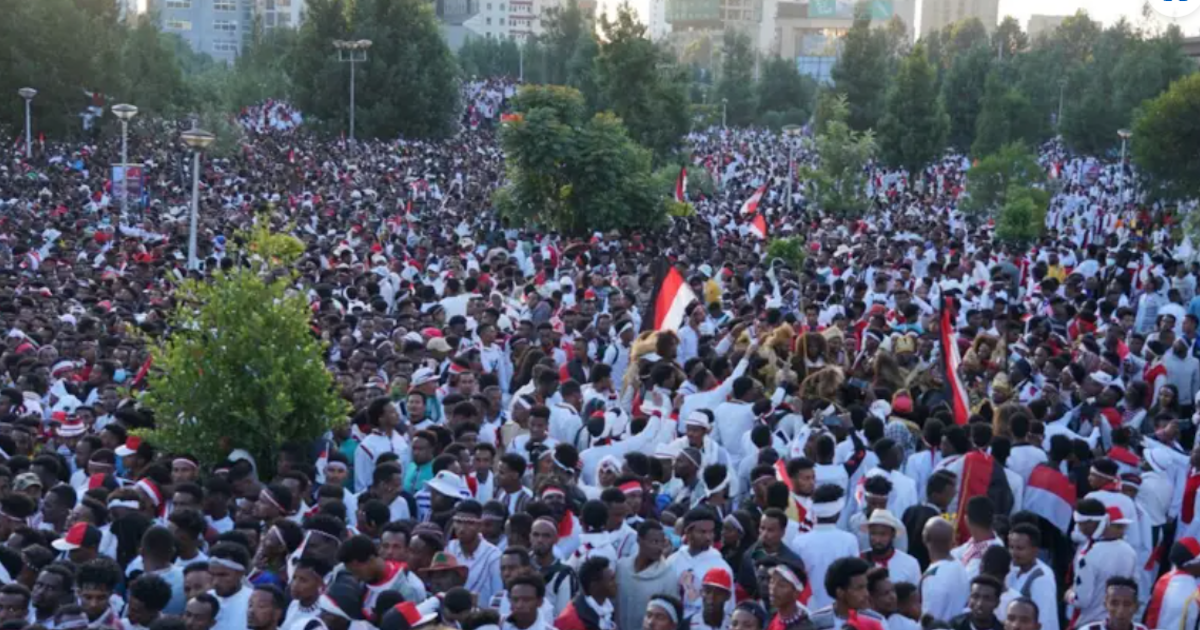
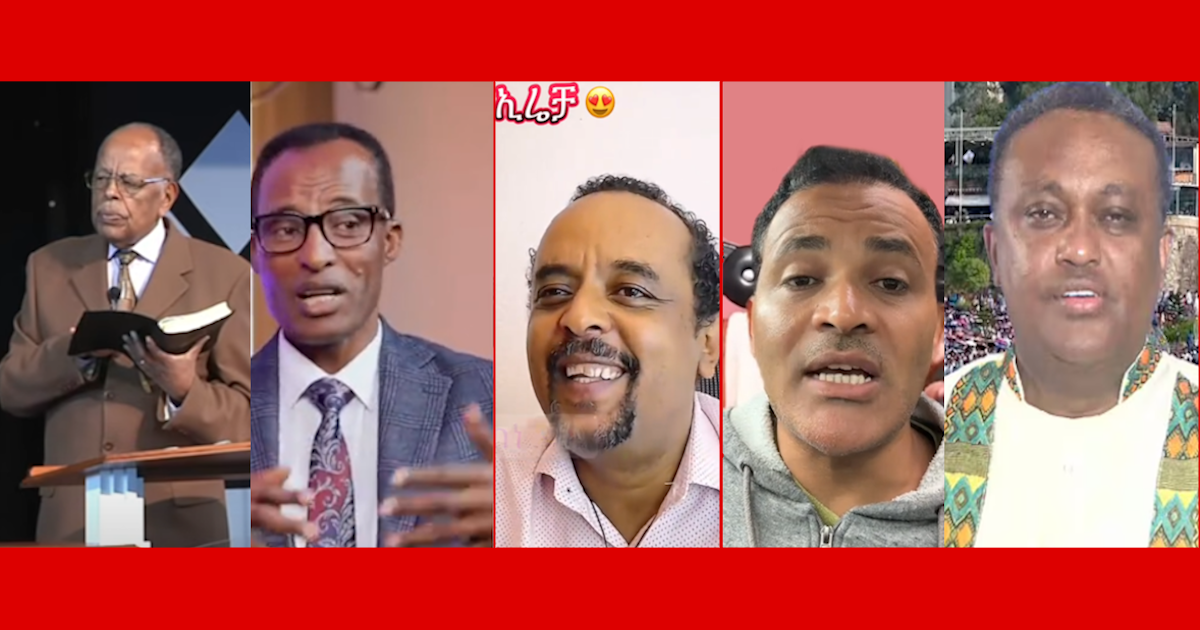
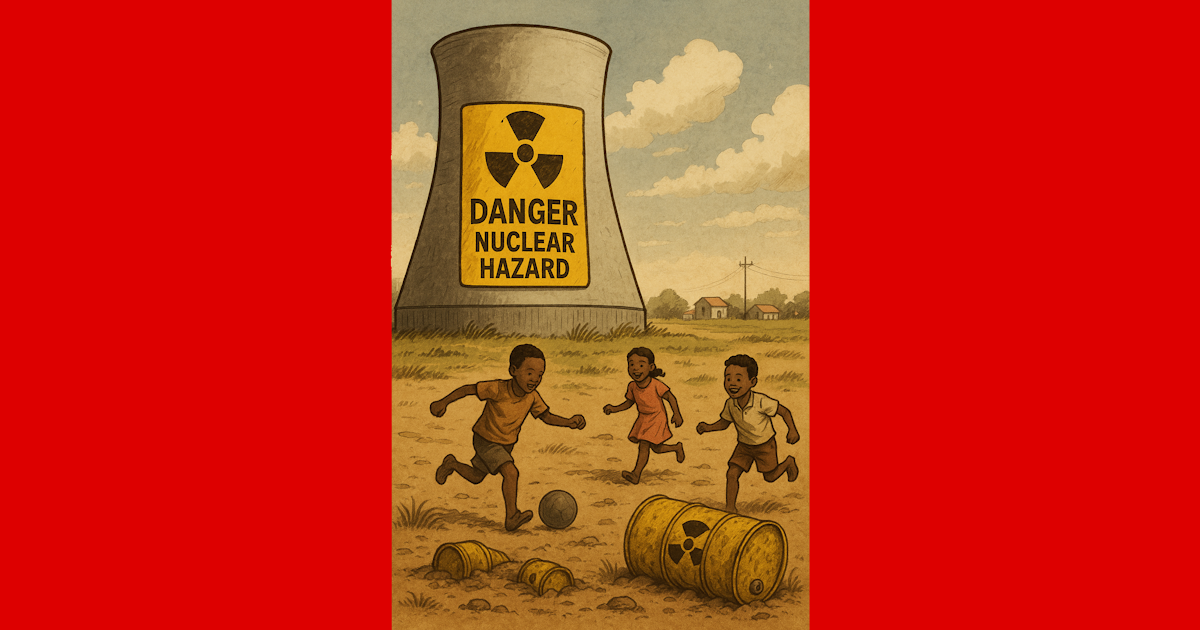
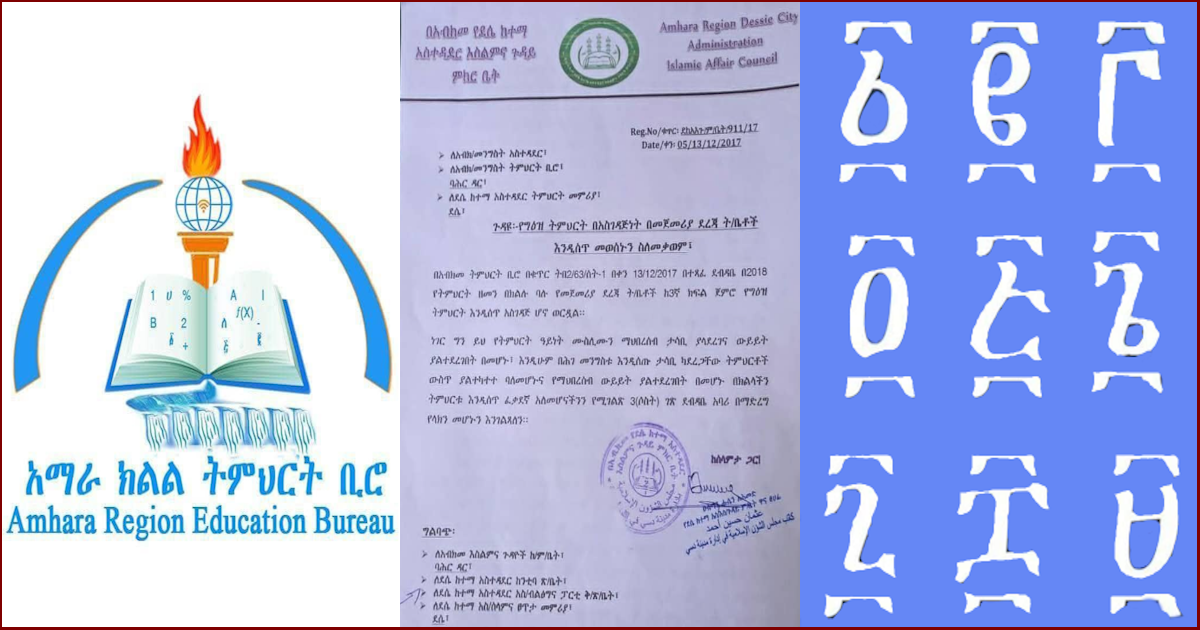
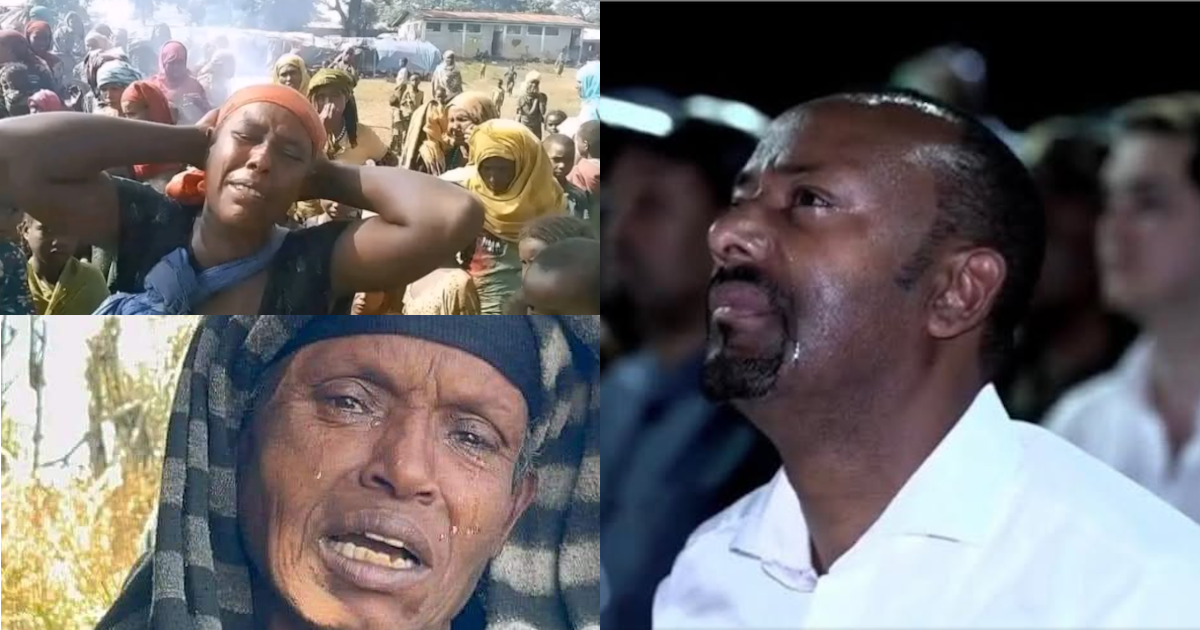
It is deeply concerning that Jimma University has endorsed an article framing Ethiopia’s Multinational Federalism as the source of civil conflict while portraying Amhara nationalism as the foundation for unity. The article, presented as academic work, promotes the erasure of Oromo and other nations’ histories, languages, and cultures, advancing a single-language, single-religion identity rooted in Amhara dominance as the national ideal.
Jimma University’s institutional support for this narrative aligns it with the Prosperity Party’s centralist ideology and makes it complicit in efforts to erase Oromo identity. For a university historically regarded as a hub for advancing scholarship with equity, this represents a profound betrayal. It is not merely an intellectual failure but may be seen as an act of academic treason against the Oromo cause, and by extension, other oppressed peoples, and this institutional negligence would, undoubtedly, demands public condemnation and an independent investigation.